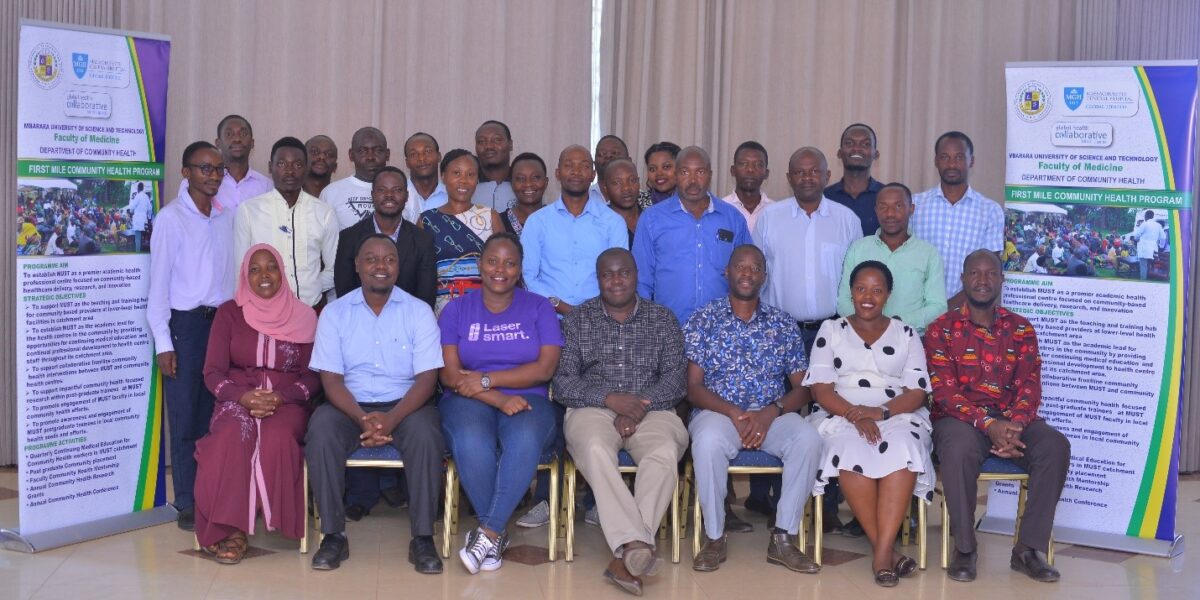The Department of Microbiology at Mbarara University of Science and Technology (MUST), in collaboration with the First Mile Community Health program, successfully organized a Quarterly Continuous Medical Education (CME) workshop focusing on antimicrobial resistance (AMR).
The event, held on the 7th and 8th of June 2023 at Oxford Hotel, aimed to equip primary healthcare workers in the MUST catchment area with the knowledge and tools to combat the global crisis of AMR. The workshop began with welcoming remarks from Mr. Ntaro Moses, the Head of Community Health at MUST, who expressed gratitude to the participants for their attendance.
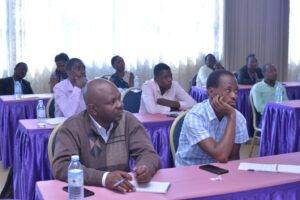
Dr. Joseph Ngonzi, the Dean of the Faculty of Medicine at MUST, delivered the opening remarks and emphasized the importance of addressing AMR as a critical global health challenge. “I have great confidence in the transformative power of this workshop. By equipping yourselves with knowledge about antimicrobial resistance, you are becoming the agents of change our healthcare system desperately needs. Together, we can overcome this global crisis and pave the way for a healthier future. I commend your dedication and urge you to apply the lessons learned here to become leaders in the fight against AMR.” He stated.
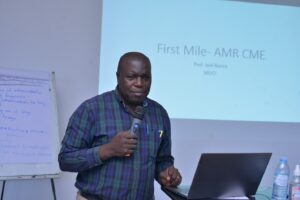
During the workshop, Assoc. Prof Joel Bazira the Head of the Microbiology department at MUST shed light on the global impact of AMR and the response required. “AMR is a challenge that knows no boundaries. It is crucial to develop collaborative strategies to tackle this issue globally. We need to work together to strengthen infection control measures, foster surveillance, and develop new treatments.” He emphasized.
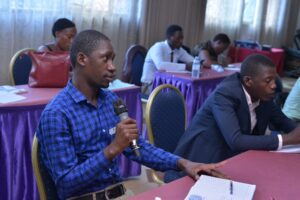
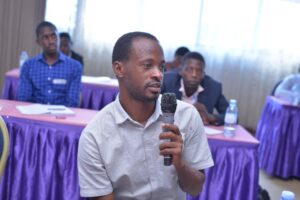
Ms. Hanifa Nantongo a lecturer in the nursing department of MUST, presented recent study findings on AMR in primary health centers. In her presentation, she highlighted the importance of local research and understanding the specific challenges faced in the region. “Our study findings indicate the need for targeted interventions to address AMR in primary health centers in southwestern Uganda. By implementing infection prevention and control measures, we can effectively combat AMR and improve patient outcomes.” She revealed.
Dr. Jonans Tusiimire the deputy dean Faculty of Medicine at MUST, in his session on antimicrobial stewardship, underscored the impact of healthcare workers’ decisions on reducing AMR. “As health workers, the decisions you make have an impact on antimicrobial stewardship. The aim of this training is to optimize the safe use of antimicrobials, reduce selection pressure that may give rise to future antimicrobial resistance, and ultimately improve health outcomes while reducing healthcare costs.” He tipped.
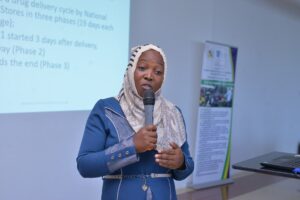
Hanifa Nantongo, also discussed the role of infection prevention and control in the fight against AMR and HCAIs. She mentioned that by implementing rigorous infection prevention and control measures, the spread of resistant microbes can be minimized and effectively combat AMR.
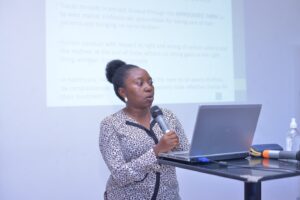
Reflecting on the workshop, Dr. Rose Muhindo from the department of internal medicine at MUST emphasized the importance of ethical considerations, leadership, and effective communication in combating AMR. She specified, “Ethics, leadership, and communication are integral to addressing AMR. We must prioritize responsible antimicrobial use and effectively communicate the importance of these practices to both healthcare providers and patients.”
Mr. Moses Ntaro, during his closing remarks, expressed gratitude to the participants for their active engagement and dedication to learning about AMR. “By attending this workshop, you have demonstrated your commitment to improving healthcare outcomes and combating AMR. I congratulate each and every one of you, and I encourage you to apply the knowledge gained in your daily practice.” He appreciated.
‘’I also want to thank healthcare workers in southwestern Uganda for accepting to host and help our students when we send them to your facilities. MUST is offering a good learning environment,’’ He concluded.

